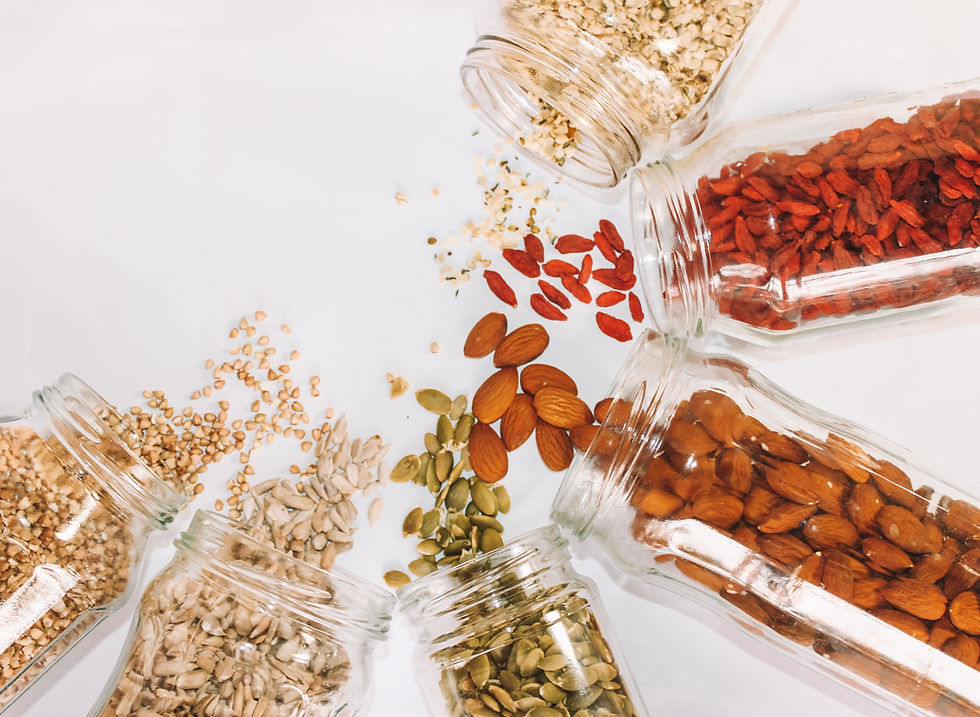Are You Getting Enough Magnesium?
- Danielle Rodger

- Dec 15, 2023
- 2 min read
Updated: Nov 28, 2025
What is magnesium?
Magnesium is an important mineral and electrolyte that the body needs to stay healthy. The body needs magnesium to support processes in the body such as regulating muscle and nerve function, energy production, stabilising blood sugar levels and blood pressure, bone and teeth structure, making protein, bone and DNA. Over half of the body's magnesium is found in bone and a third in muscles and soft tissues. Magnesium is important for the healthy formation of bones and to maintain the health of muscles, including the heart.

What happens if we don't get enough magnesium?
When the body is deficient in magnesium the kidneys will reduce the amount that is lost in the urine to help hold magnesium in the body for longer. Over the long term if the body becomes too deficient in magnesium it may experience a loss of appetite, nausea, vomiting, fatigue and weakness. Extreme magnesium deficiency can result in numbness, tingling, muscle cramps, seizures, personality changes and an abnormal heart rhythm. However, there is a correlation in magnesium levels with calcium and potassium levels. This means there could be further adverse effects when the body becomes deficient in this mineral.
How much magnesium do we need?
The recommended dietary intake varies based on age, gender, and growth:
Men 19-30: 400mg/day
Men 31 and older: 420mg/day
Women 19-30: 310mg/day
Women 31 and older: 320mg/day
The groups of people that are at a higher risk of magnesium deficiency are;
People with gastrointestinal diseases, such as Crohn’s disease and Celiac disease
People with type 2 diabetes
People that consume alcohol regularly
Older adults
Athletes

What foods are high in magnesium?
There are many ways to increase the levels of magnesium in the body. However, it is best to incorporate foods that contain this mineral so that the body does not become deficient. Foods that contain high amounts of natural magnesium include;
Beans and lentils
Nuts and seeds
Dark green vegetables e.g. spinach, kale
Whole grains e.g. rolled oats, brown rice
Dark chocolate
How to reach 400mg:
Breakfast: 60g rolled oats + 1/2 cup milk and 1tblsp mixed seeds: 210mg
Lunch: Tin of tuna with 2 slices wholegrain bread with handful of baby spinach: 90mg
Dinner: Grilled chicken (150g) + garden salad and ½ cup mixed canned beans: 90mg
Dessert: 20g dark chocolate: 25mg
Total: 415mg

What about supplementation?
Ideally, we want to meet our magnesium target through food where possible. However, if this is not possible due to food preferences, allergies, intolerances, or if you have higher magnesium requirements, then a supplement may be needed. The dose and frequency depends on your induvial circumstances and requirements.
References




Comments